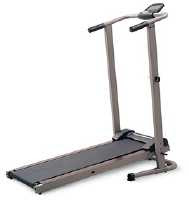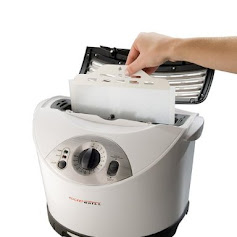Debt consolidation/debt management programs..
There are many companies who will
assist you with consolidating your debts, but you must be careful there are
some scams out there too. Most of these
companies charge fees and you can no longer use your credit cards when you sign up. Ask someone who has used a consolidation program other
than a credit counseling service what there experience has been like also look up reviews when you have chosen a company. These
programs generally do not stop the interest, thus it takes longer to pay bills
off.
Cut up credit cards, particularly those high interest
ones.
Forget what you heard about keeping one credit card in case
of emergencies. Most people max out the
one credit card they have left; therefore they still need monies in a
crunch. Learn to save money. Discipline yourself to take a portion of
monies from each paycheck and put into a savings account. If you can’t set aside the money, you may
want to consider finding a company that will automatically deduct monies and
put them into a savings account for you.
Avoid payday loans and the pawn shop.
As convenient as they are when you really need money, you also find yourself taking the money you need most to pay off a temporary fix that only leads you down a dead-end path--borrowing more money.
Stop leasing cars, televisions, computers and entertainment
systems.
There has been many news shows that have shown leasing
companies charging more for products than what they are worth. They do this by allowing you to pay a very
low monthly fee to own products such as a living room set. It is more sensible to save for the item that
you need, rather than paying a company monthly and risk being charged
additional fees when you are late. In
some cases, customers have found they don’t need the furniture and will send it
back to the company after paying on it for some time. Now they have wasted money, because the
company will not allow them to take the money they paid for one item and
transfer those payments on something else.
Forget balancing your checkbook.
If you find yourself often bouncing checks, the best way to
begin a new habit is to break an old one.
Don’t bother writing checks (and yes there are those who still do); instead use money orders or pay cash. This way you have the money in hand and will
not have to be concerned with the worry of wondering when someone will cash
your check.
Avoid unnecessary insurance plans.
Are you transitioning a lot between jobs, living
arrangements and have other personal changes?
Then you don’t need to spend money on insurance plans until you are more
stable in your life. Otherwise, you will
find yourself making commitments, then breaking them and eventually losing
money. Get stable in your life
first. Then consider a whole life
insurance plan that you can borrow money from in the future if you are ever in
a financial crisis. If you know you will
be settling down in one location for a period of time, then consider renter’s
insurance only when you financially stable again.
Manage money with finance software, app.
Sometimes people do well when they are in complete control
of their finances. Consider purchasing a
software program that will alert you to when bills are due, assist you with
managing your bills, and help you with savings.
Don't convince your child to go to college if you can't
afford to help him or her.
Too many parents are not able to assist their children with
college expenses and as a result many children are in debt before they graduate
and can’t keep up with the student loans.
Instead, explain to the potential college student that the loan he or
she takes out for school must be paid back.
Be honest with your child about your money troubles, so that they aren’t
anticipating your financial assistance.
If the student plans on studying something such as acting, and the
future salary attained is not the equivalent of what the loan is worth in the
future, he or she may want to consider another career.
Avoid eating out at restaurants.
If you must go out to eat, research which ones are the least
expensive and use coupons whenever possible. Sign up for discount programs that the restaurant offers.
Search for cheaper gasoline service stations.
Pay attention to special rates. Avoid gasoline credit cards--they have very
high interest rates.
Break from the holiday hustle and bustle.
There is no rule that says you have to buy someone something
every year or celebrate a money-draining holiday with family and friends. Take a break from the
holidays and when you are ready to start celebrating again, develop a spending plan. You can set up and account or create an envelop system where you deposit a percentage of money out of each paycheck to go toward gifts, food, décor, travel expenses, etc. Avoid the temptation to buy gifts for people who have
everything, sometimes doing something simple is better such as buying a gift card
and putting money on it. You can
also avoid feeling obligated to buy for family and friends by staying home for
the holidays.
Temporarily disable cable, use alternative services.
Avid movie watchers will want to take out their calculators
on this one if you are spending much on movie theater visits, cable TV or satellite and online movie rentals.
Cancel all membership to music and book clubs.
Make the time to read and listen to what you already have. If you must have a certain artist
or author, shop around for the cheapest price via used book stores online or offline.
Utilize your existing job to increase your wages.
Offer to work additional hours, ask for more
responsibilities, and request to be placed on projects to get your manager’s
attention. When you make efforts like
these, you will put yourself in a position to make more money.
Get a second job part-time, check for additional ways to make money
This will put you on the fast track to achieving your goals
as long as you plan to use the extra money for your intended goals. From cash-back savings programs to online selling, do what you can legally and morally to gain money.
Advice for parents:
Stop buying for your 16 year old!
Tell your child to get a job. Offer to help him or her look for work and go with the child to the location that might be of assistance like a work based learning program for starters. If you stop buying, they will start
working.
Make a plan for your existing finances and unexpected ones before you spend it
Each time you receive money you know what bills are due and
what money you will need to pay for groceries, transportation, childcare,
lunch, etc. With a plan, you will know
exactly how much money you can spend on each responsibility on your list. You will also know how to best curb your
finances in the short term and how to better save in the long term.
Use every opportunity to save money
Coupons, store points, product offers, sales, etc. There are plenty of opportunities to save
money. Use them! When you know you buy a lot of a certain
product each month, then buy it in bulk when it’s on sale. Go to stores that double coupons or provide
bargains to consumers for visiting.
Don’t waste time shopping at stores that rarely have “real” sales. You will know how “real” those sales are when
you comparison-shop. Find similar stores
offering the same items and see how their prices compare with the others.
Brainstorm for more ways to cut expenses, make and save money. You will start to feel better about your situation when you are proactive about changing it. To your success!




